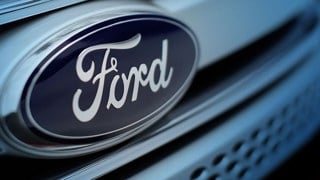The former CEO of Volkswagen has appeared in court facing charges of fraud, market manipulation and perjury, nearly a decade after the car manufacturer was discovered to have rigged emissions tests.
Martin Winterkorn led the German automotive giant in 2015 when the company was engulfed in a scandal when it was revealed that Volkswagen had been intentionally manipulating official emissions tests, designing vehicles that could pass laboratory assessments while emitting unlawful levels of pollutants during normal driving conditions.
Last year Rupert Stadler, a VW Group board member and boss of Audi at the time, received a suspended prison sentence and a huge personal fine for his part in the scandal.
The former CEO of Volkswagen has appeared in court facing charges of fraud, market manipulation and perjury, nearly a decade after the car manufacturer was discovered to have rigged emissions tests.
Martin Winterkorn led the German automotive giant in 2015 when the company was engulfed in a scandal when it was revealed that Volkswagen had been intentionally manipulating official emissions tests, designing vehicles that could pass laboratory assessments while emitting unlawful levels of pollutants during normal driving conditions.
Last year Rupert Stadler, a VW Group board member and boss of Audi at the time, received a suspended prison sentence and a huge personal fine for his part in the scandal.
Winterkorn's trial began on Tuesday, with the former executive denying all charges. His lawyers asserted, "Our client did not defraud or harm anyone, nor did he intentionally mislead the capital market to harm investors. He also provided truthful testimony to the investigative committee."
The "Dieselgate" scandal erupted in September 2015 when the U.S. Environmental Protection Agency accused Volkswagen of installing illegal "defeat devices," software that detected laboratory testing and activated emissions controls to pass the tests
Winterkorn is accused of deliberately deceiving Volkswagen customers, shareholders, and German politicians and if convicted, could face up to 10 years in prison..
It later emerged that the deception had been ongoing since 2006, affecting over nine million vehicles in Europe and North America. The scandal impacted multiple brands within the Volkswagen Group, including Audi, Porsche, Seat and Skoda.
The company faced significant financial penalties, recalls and consumer compensation, costing it over €30 billion (£25.2 billion). Winterkorn, who had served as CEO since 2007, resigned shortly after the scandal broke.
Prosecutors have charged Winterkorn with fraud, alleging that buyers were "deceived about the characteristics" of the vehicles, resulting in collective losses of hundreds of millions of euros.
He is also accused of market manipulation for allegedly failing to inform investors about the emissions-rigging software once it was known.
Additionally, Winterkorn has been accused of giving false testimony to a parliamentary committee.
Volkswagen chairman Hans Dieter Pötsch and former brand head, Herbert Diess, were charged with market manipulation, although those charges were dropped after the company paid a €9 million fine. Former Audi CEO Rupert Stadler was fined €1.1 million and received a 21-month suspended jail sentence after admitting to fraud by negligence.
While most of the legal actions occurred in Germany, former Volkswagen engineer Oliver Schmidt was tried in the US and sentenced to seven years in prison in 2017, though he was released in 2021.
Winterkorn has already paid €11 million to Volkswagen as part of a settlement related to the scandal.
Login to continue reading
Or register with AM-online to keep up to date with the latest UK automotive retail industry news and insight.



















Login to comment
Comments
No comments have been made yet.